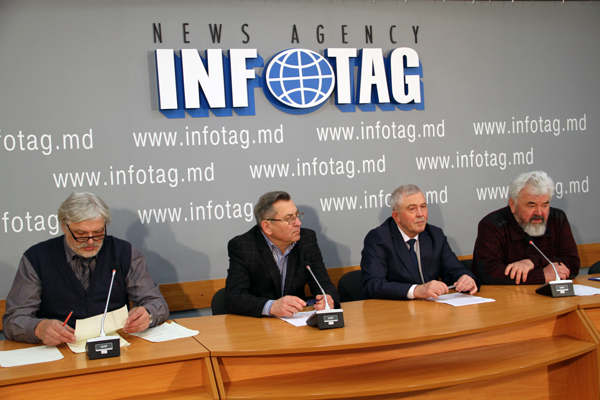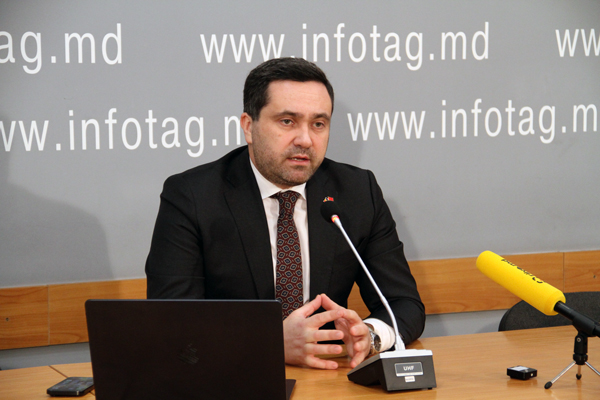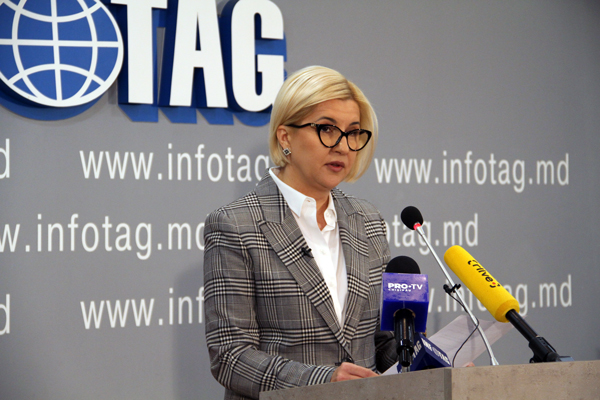Politics
ATLANTIC COUNCIL EXPERTS SAY THAT MOLDOVA IS LIKELY TO GET OLIGARCH-LED AUTHORITARIAN REGIME

Moldova is likely to move in an oligarch-led quasi-authoritarian direction, concluded experts of the Atlantic Council within the research "A Strategy for Moldova", presented in Washington at the Atlantic Council discussion platform, dedicated to reforms in the Republic of Moldova.
According to the report, at present, Moldova is in a political crisis. The government is increasingly losing credibility after the judiciary annulled the results of a free and fair mayoral election in Chisinau on June 3. The winner of the election was opposition leader Andrei Nastase and the decision to annul the election was upheld by the Supreme Court.
"The country is now seeing the consequences of this decision. After the Supreme Court upheld the lower court's decision, the European Union announced on July 4 that it was suspending the disbursement of a 100 million euros tranche of macro-financial assistance. Popular protests in Chisinau continue with regularity, while civil society organizations are actively denouncing troubling political developments and encouraging citizens to stand up for their rights. The approval rating for the government coalition, led by the Democratic Party of Moldova, is low", experts say.
According to report authors, the annulment of the seemingly free and fair election of mayor in Chisinau summarizes Moldova's two most pressing needs today: reform of the political and judicial systems.
"The resolution of these two key problems is complicated by the electorate being divided over the country's future international orientation, and the ongoing frozen conflict in the separatist area of Transnistria. In addition to Moldova's domestic political problems, Russian interference and pressure - on both Moldova's territorial integrity and its political independence - has put a squeeze on Moldova's development, European ambitions, and democratization since independence, and it continues to do so today", the experts say, supposing there are three possible scenarios for Moldova's future.
"The first is the movement in an oligarch-led, quasi-authoritarian direction, with worsening democratic conditions and increasing isolation from Western institutions. In light of the events related to the recent election and the consolidation of power and near-universal control over the media, judiciary, and private businesses, the country is dangerously close to following an authoritarian path. This can only be in the interest of very few people", experts say.
Another potential scenario is that Moldova slips under the increasing influence of Russia, since the Socialist Party that effectively replaced the Communist Party has a stronghold on voters who are nostalgic for Soviet times.
"The Socialist Party receives the majority of its support from the older generation and from Slavic, Russian-speaking citizens in the country. The Socialists, who have cooperated with the Democratic Party on numerous recent occasions, are already the most popular political party in the country and will likely win the highest number of seats in the next parliamentary election. However, this is not a viable option for the future", experts supposed.
The only sensible option for Moldova is option three, which would lean the country toward a Western-oriented and democratic future.
"Economically, Moldova appears to have chosen this option, but it requires significant political and judicial reforms involving changes to the governance structures, continued citizen engagement and pressure, and support from Western institutions and donors. The months leading up to and following the next parliamentary elections - slated to be held in February 2019 - will be a critical time for the country", the report says.
























Add Comment